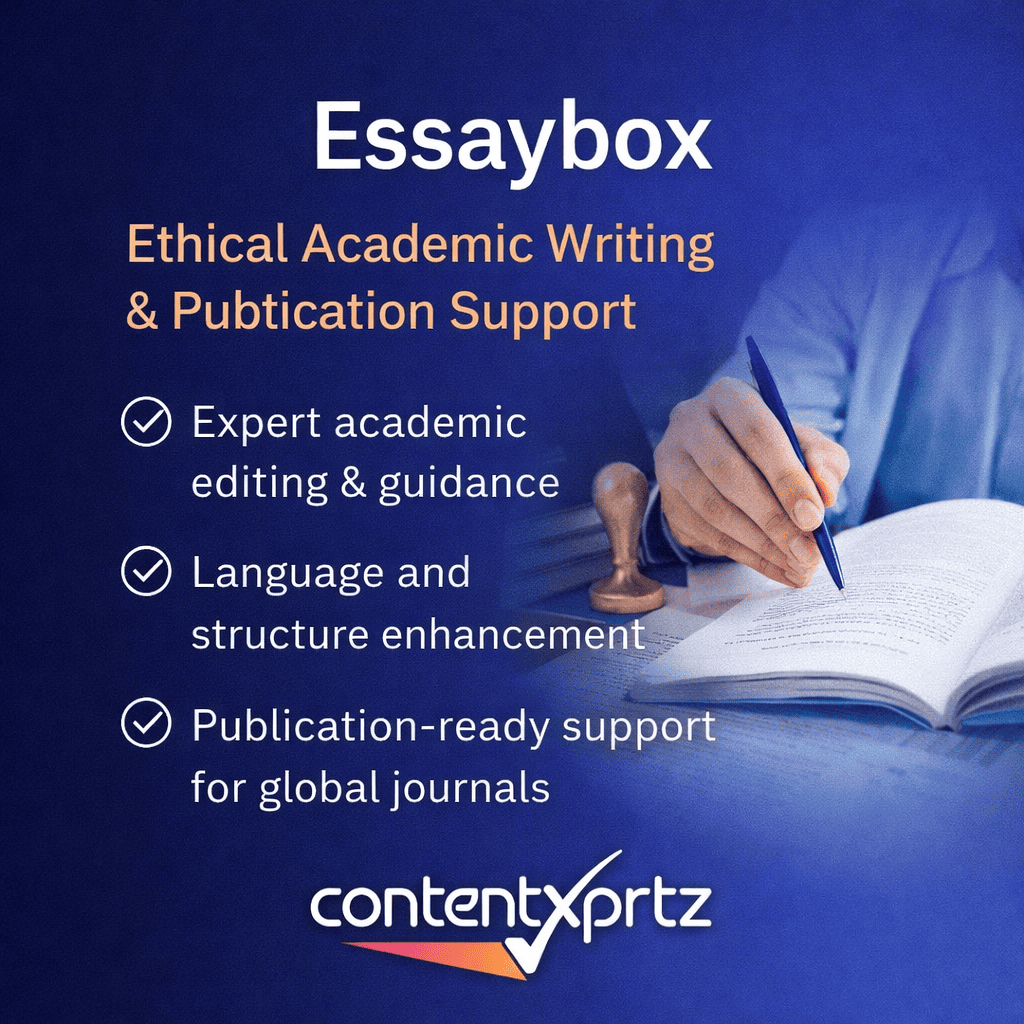Crafting A Great Thesis Statement: Your Blueprint for Academic Success
Every powerful dissertation begins with a single, defining sentence — a great thesis statement. It is the academic backbone of your research, the compass that guides your reader, and the promise that your paper will deliver clarity and insight. Yet, for many PhD scholars, postgraduate students, and academic researchers, crafting this one sentence often becomes one of the most difficult stages of writing.
Across the world, thousands of doctoral candidates struggle with articulating the central argument of their research. According to data published by Elsevier, less than 30% of PhD students finalize their thesis structure within their first year, largely because of weak conceptual framing and unclear research focus. Similarly, studies on academic publishing trends reveal that dissertations with a clearly defined thesis statement are 40% more likely to receive favorable reviews or faster publication acceptance.
The challenge extends beyond mere writing. PhD candidates today face overwhelming pressures of publication, rising academic costs, and an increasingly competitive research landscape. Balancing originality, structure, and clarity — all while conforming to institutional expectations — demands expertise, discipline, and time. Unfortunately, many scholars are stretched thin between coursework, teaching assistantships, and field research, leaving little room for careful writing.
This is where professional academic support can make a difference. A well-crafted thesis statement, refined through academic editing and guided by research expertise, ensures your work speaks with authority and focus. At ContentXprtz, we specialize in empowering researchers to write with confidence — transforming fragmented ideas into clear, compelling, and publication-ready arguments. Because in academia, your first sentence often defines your entire scholarly identity.
Why A Great Thesis Statement Matters
A thesis statement is not merely a summary; it is a strategic declaration of your intellectual position. It serves three essential purposes:
- Defines your argument: It encapsulates what your research aims to prove or analyze.
- Guides your structure: It organizes the flow of evidence and discussion.
- Engages your reader: It sets expectations and creates academic coherence.
A weak or vague thesis can derail even the most innovative research. On the other hand, a clear, strong, and purposeful statement acts as the foundation for effective communication, ensuring your audience immediately understands the value of your work.
According to Springer, research papers with well-articulated thesis statements receive significantly higher citation rates, as clarity directly influences scholarly impact. In essence, your thesis statement doesn’t just guide your paper — it shapes how your peers perceive your contribution to the field.
The Anatomy of A Great Thesis Statement
Creating a great thesis statement requires aligning content, context, and clarity. The following structure can help:
- Topic Identification – Define what your research focuses on.
- Claim or Argument – Express your specific stance or hypothesis.
- Rationale or Significance – Explain why your argument matters.
For example:
“This study examines how adaptive leadership enhances organizational agility in technology firms by fostering dynamic capabilities and cultural flexibility.”
This statement clearly outlines the topic (adaptive leadership and agility), the argument (leadership enhances agility), and the rationale (it fosters dynamic capabilities and culture).
A great thesis statement is:
- Specific — avoids generalities.
- Debatable — presents a claim, not a fact.
- Focused — concise yet comprehensive.
- Aligned — consistent with the paper’s scope.
Common Challenges Students Face
Writing a thesis statement is not easy, especially when dealing with interdisciplinary topics or complex methodologies. Common struggles include:
- Unclear research objectives — students often start writing without defining their main argument.
- Overly broad statements — trying to cover too many aspects weakens focus.
- Ambiguous language — poor word choice leads to confusion.
- Fear of commitment — many hesitate to take a strong stance early in the paper.
Professional PhD support and academic editing services can refine such statements into academically sound propositions that meet publication standards.
For scholars looking for personalized help, explore our PhD & Academic Services or Writing & Publishing Services to get expert guidance from experienced editors.
How to Write A Great Thesis Statement Step-by-Step
1. Understand Your Research Question
Begin by asking: What is the core question my research seeks to answer?
A clear research question helps narrow your focus.
2. Review Existing Literature
Explore similar studies in Emerald Insight or Taylor & Francis to understand how established scholars frame their arguments. Literature reviews clarify gaps your thesis can fill.
3. Define Your Contribution
Every great thesis highlights what is new. Ask:
- What makes my research unique?
- How does it add value to existing knowledge?
4. Draft and Test Your Statement
Write multiple versions and test them with peers or mentors. Your statement should be strong enough to guide an entire paper but flexible enough to evolve during research.
5. Seek Professional Feedback
A professional review by ContentXprtz editors can ensure your thesis aligns with academic conventions and journal standards. Visit our Academic Editing Services for personalized support.
Examples of Great Thesis Statements
- “Cultural adaptation in global marketing campaigns enhances consumer trust by aligning brand identity with local values.”
- “AI-driven analytics improve risk prediction accuracy in financial institutions by integrating behavioral and transactional data.”
- “Sustainable supply chain practices increase organizational resilience during geopolitical disruptions.”
Each example presents a clear argument, actionable focus, and academic depth — the hallmarks of effective scholarly writing.
The Role of Editing in Perfecting Your Thesis Statement
Even experienced writers need editing support. A single misplaced word can alter the meaning of your thesis. Professional editors bring an external, objective perspective — ensuring consistency, clarity, and tone alignment.
At ContentXprtz, our editors specialize in refining dissertations, journal papers, and research manuscripts across disciplines. Whether you are struggling with phrasing, argument structure, or stylistic tone, we help shape your thesis into a compelling scholarly statement.
For comprehensive academic editing, explore our Student Writing Services.
Expert Tips for Writing A Great Thesis Statement
- Start Early: Don’t wait until the results are ready — begin forming your thesis while designing your research.
- Keep It Concise: Aim for 1–2 sentences; clarity is more persuasive than length.
- Use Active Voice: Active verbs strengthen your argument.
- Avoid Clichés: Replace “This paper will discuss” with a strong declarative statement.
- Align With Objectives: Ensure every chapter supports your thesis claim.
- Edit Ruthlessly: Refine phrasing until every word serves a purpose.
Integrating Your Thesis Statement Into the Dissertation
A great thesis statement should echo throughout your dissertation. It should guide:
- Introduction: Establish context and significance.
- Literature Review: Connect prior studies to your argument.
- Methodology: Justify your chosen research approach.
- Results & Discussion: Demonstrate how findings support your claim.
- Conclusion: Reaffirm your thesis and highlight implications.
For advanced assistance on structuring academic chapters, visit our Book Authors Writing Services or Corporate Writing Services.
10 Frequently Asked Questions (FAQs)
1. What makes a thesis statement “great”?
A great thesis statement is precise, arguable, and logically structured. It reflects the essence of your study in one to two sentences. Unlike a topic statement, it goes beyond description and takes a definitive position. For instance, “Climate change impacts agriculture” is a topic, but “Climate change reduces agricultural yield by disrupting regional weather patterns” is a strong thesis. Great statements are measurable — they can be tested or supported through evidence.
2. How long should a thesis statement be?
Ideally, one to two sentences or about 30–40 words. Length depends on your study’s complexity, but conciseness is key. Long statements risk diluting focus, while overly short ones may seem vague. Always ensure your statement answers what, how, and why.
3. Can my thesis statement evolve during research?
Absolutely. Academic writing is iterative. As your research unfolds, your understanding deepens, and your thesis may evolve to better reflect your findings. Many PhD supervisors encourage revisiting the thesis after preliminary results to ensure alignment between argument and data.
4. How does academic editing improve a thesis statement?
Editing refines clarity and coherence. Professional editors identify redundancies, improve phrasing, and ensure your tone matches academic standards. Services like ContentXprtz’s academic editing guarantee structural precision, grammatical accuracy, and journal-ready presentation.
5. What are common thesis statement mistakes?
- Making it too broad or descriptive
- Using vague terms like “good” or “important”
- Writing in passive voice
- Including multiple unrelated ideas
Avoiding these ensures your argument remains focused and compelling.
6. How can I test the strength of my thesis statement?
Ask yourself:
- Can someone reasonably disagree with it?
- Does it align with your research question?
- Can it be supported by data?
If all answers are yes, your thesis statement has analytical depth.
7. Should I include my thesis statement in the abstract?
While not mandatory, summarizing your core argument in the abstract strengthens your paper’s coherence. Journals indexed by Taylor & Francis recommend succinctly mentioning your research objective to help reviewers quickly assess relevance.
8. How do different disciplines frame thesis statements?
In humanities, thesis statements are often interpretative (“examines meaning or context”). In sciences, they’re analytical or causal (“tests relationships”). Understanding disciplinary conventions — as discussed by Emerald Insight — ensures disciplinary relevance and scholarly accuracy.
9. Can AI tools help create a thesis statement?
AI writing tools can assist in brainstorming ideas or generating structure, but human insight remains irreplaceable. Ethical guidelines by APA emphasize human authorship and originality. Use AI as a supplement, not a substitute for critical thinking.
10. Where can I get professional help with my thesis statement?
If you’re struggling to articulate your thesis, ContentXprtz offers expert-level PhD thesis help and research paper writing support through one-on-one mentoring, editing, and proofreading. Our specialists understand discipline-specific expectations, helping you craft statements that stand out in academic review.
Conclusion
A great thesis statement is more than a sentence — it is your intellectual signature. It communicates your purpose, establishes credibility, and guides your research journey from start to publication. With clarity, structure, and expert guidance, you can transform uncertainty into academic confidence.
At ContentXprtz, we empower scholars like you to refine ideas into impactful research. Whether you need PhD editing, publication assistance, or comprehensive writing support, our global team of editors and subject specialists ensures your work meets international standards.
👉 Start your academic journey with precision and purpose.
Visit ContentXprtz.com to explore personalized support for your thesis and research writing needs.
At ContentXprtz, we don’t just edit — we help your ideas reach their fullest potential.
Outbound References:

